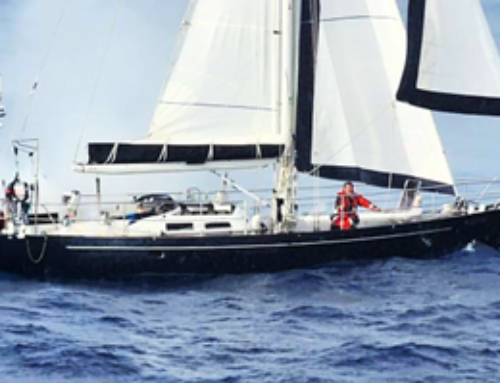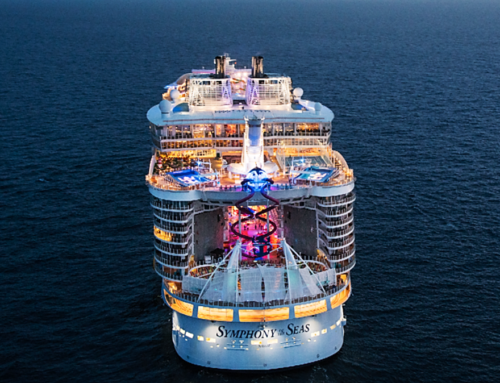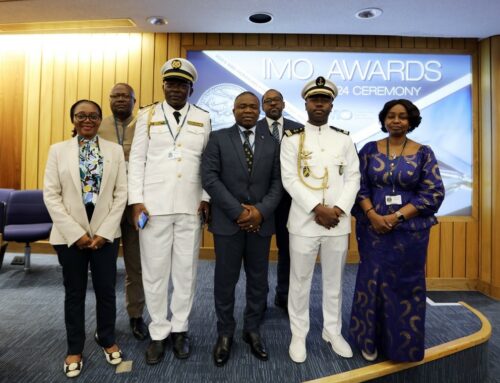China’s Revolutionary KUN-24AP Containership: A Leap in Nuclear Maritime Technology
 The maritime industry witnesses a groundbreaking development as China State Shipbuilding Corporation (CSSC) unveils the KUN-24AP containership at the Marintec China Expo in Shanghai. But this isn’t just any vessel; this is the world’s largest container ship, boasting a staggering capacity of 24,000 TEU (twenty-foot equivalent unit, which is a measure of cargo capacity). But what truly sets this ship apart is its power source: a molten salt reactor using a thorium fuel cycle, a first for the maritime world. As maritime attorneys, we are excited to hear about this new innovation!
The maritime industry witnesses a groundbreaking development as China State Shipbuilding Corporation (CSSC) unveils the KUN-24AP containership at the Marintec China Expo in Shanghai. But this isn’t just any vessel; this is the world’s largest container ship, boasting a staggering capacity of 24,000 TEU (twenty-foot equivalent unit, which is a measure of cargo capacity). But what truly sets this ship apart is its power source: a molten salt reactor using a thorium fuel cycle, a first for the maritime world. As maritime attorneys, we are excited to hear about this new innovation!
A New Era of Clean and Powerful Marine Propulsion
The KUN-24AP’s molten salt reactor may represent a significant technological leap forward. Its use of thorium, an element more abundant than uranium, offers a cleaner, safer form of nuclear energy. This fuel source not only provides the immense power needed to propel the colossal vessel, but also eliminates harmful emissions, setting a new standard in eco-friendly marine travel.
Approval and Anticipation
The Norwegian classification society, DNV, has granted an approval-in-principle to the CSSC Jiangnan Shipbuilding shipyard for the construction of the KUN-24AP. This move signals a strong belief in the vessel’s viability and a step towards a cleaner, faster future in container shipping, especially crucial in today’s economically challenging times for the shipping industry.
 Nuclear Marine Propulsion: From Military Might to Commercial Use
Nuclear Marine Propulsion: From Military Might to Commercial Use
Nuclear propulsion is not new; this technology has been a cornerstone of military naval power for decades, exemplified by vessels like the USS Nimitz. The immense energy density of nuclear fuel allows for extended operational periods without refueling, a capability critical for military applications but equally advantageous for commercial shipping. Conventionally-powered vessels, such as diesel-electric submarines and aircraft lack the range and scale these types of ships do, so this is an important innovation for transport technology in general.
 The Soviet-era Sevmorput, the only civilian nuclear-powered cargo ship in operation, underscores the potential of nuclear propulsion in the commercial sector. However, the KUN-24AP‘s molten salt reactor represents a significant departure from conventional nuclear designs such as the pressurized water reactors used in the Sevmorput and the Nimitz.
The Soviet-era Sevmorput, the only civilian nuclear-powered cargo ship in operation, underscores the potential of nuclear propulsion in the commercial sector. However, the KUN-24AP‘s molten salt reactor represents a significant departure from conventional nuclear designs such as the pressurized water reactors used in the Sevmorput and the Nimitz.
Anticipated Advantages of the Molten Salt Reactor
The molten salt reactor on the KUN-24AP may offer numerous benefits, such as:
- Inherent safety features
- Continuous refueling capability without shutdowns
- High burn-up rate, resulting in minimal waste
Rooted in China’s TMSR-LF program, this reactor is a fast neutron breeder, efficiently utilizing thorium to produce U-233 (uranium 233) for fuel. This marks a shift towards more economical and abundant thorium over traditional uranium fuel.
The Challenge of Powering Giant Vessels
Creating large container ships like the Evergreen G-class or the new KUN-24AP is not the primary challenge; it’s propelling them efficiently. Traditionally, large combustion engines or combinations of boilers and steam turbines have been used. However, the KUN-24AP’s nuclear propulsion offers a more efficient, cleaner alternative, potentially revolutionizing the industry.
Impact on Global Shipping Dynamics
In a world where maritime routes are constantly evolving and the demand for faster, more efficient shipping is ever-present, the KUN-24AP’s unveiling is timely. Its ability to travel faster without the fuel cost penalty could reshape global shipping routes, offering flexibility and efficiency previously unattainable.
Overcoming the Stigma of Nuclear Power
Despite the potential benefits, nuclear marine propulsion has faced resistance, often due to misconceptions and regulatory hurdles rather than technological limitations. The KUN-24AP, with its advanced and automated reactor design, aims to change this narrative, showcasing the feasibility and safety of nuclear power in commercial shipping.
Looking Ahead
As other industry giants like Samsung Heavy Industries express interest in similar technologies, the future of container shipping appears to be on the cusp of a clean energy revolution. With greater acceptance from insurance companies and harbor operators, the era of zero-emission, nuclear-powered commercial vessels just might be closer than anticipated.
The KUN-24AP is not just a marvel of modern engineering, it provides hope for a cleaner, more efficient maritime industry. Its successful implementation could mark the beginning of a new chapter in commercial shipping, where power, efficiency, and environmental responsibility sail hand in hand.
We at the Herd Law Firm are proud to fight for maritime workers and passengers in all types of personal injury claims. As Houston maritime attorneys, we never waver in our commitment to help these maritime workers and their families when they are injured.
12/29/2023
Image credit: CSSC







